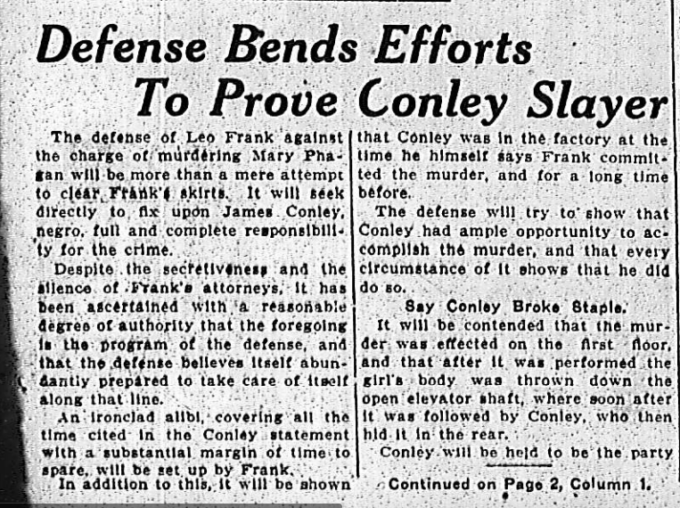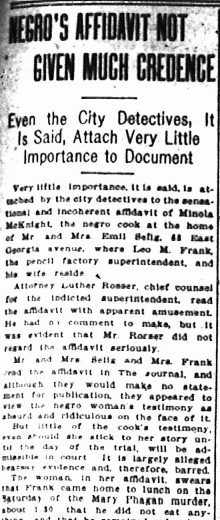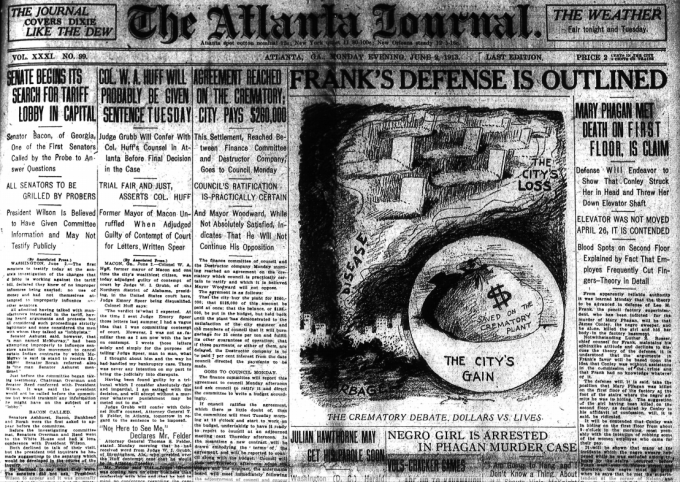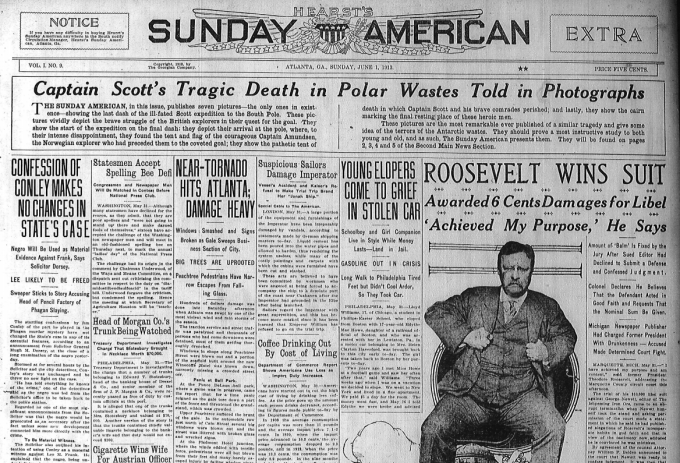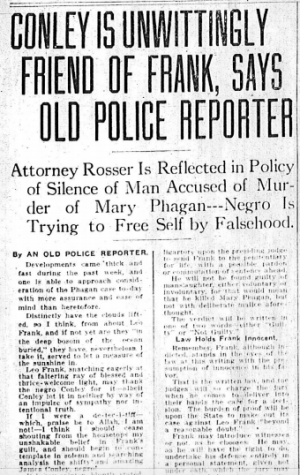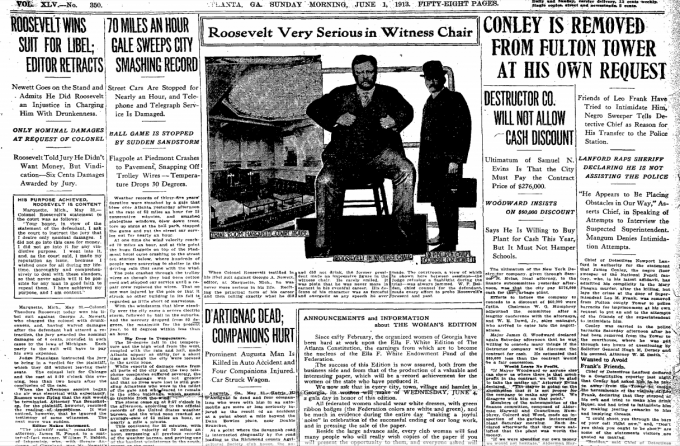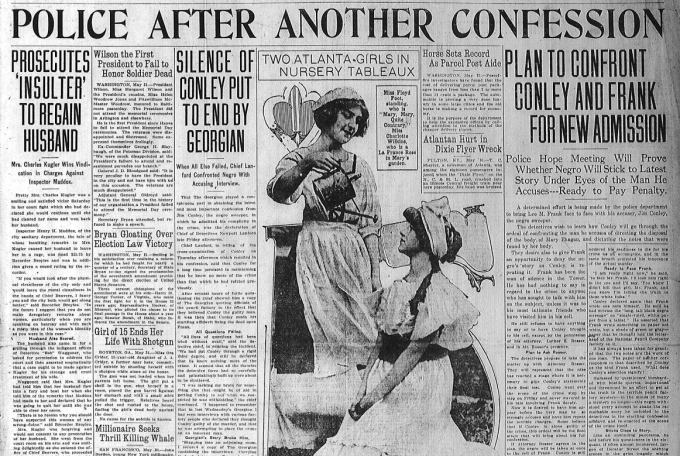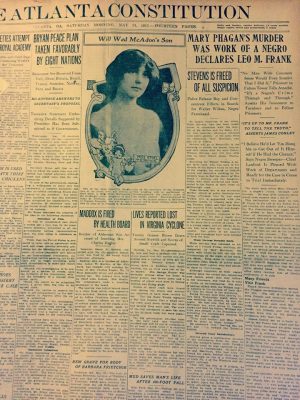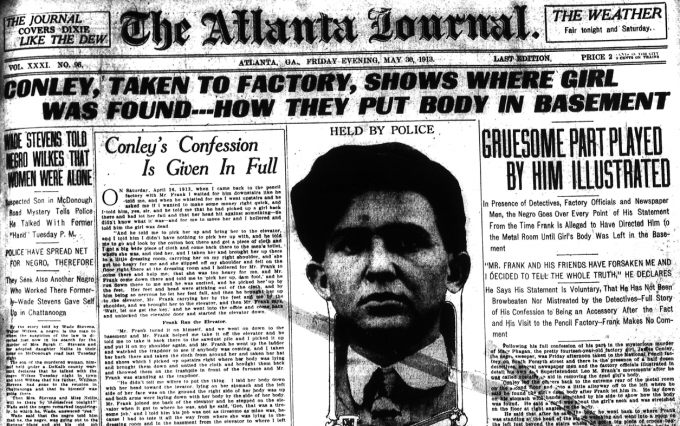 Another in our series of new transcriptions of contemporary articles on the Leo Frank case.
Another in our series of new transcriptions of contemporary articles on the Leo Frank case.
The Atlanta Constitution
June 13, 1913
Hearing Before Judge Roan Today Will Decide Whether Negro Will Be Sent to Tower.
Whether James Conley, the negro sweeper, who swears that Leo Frank got his aid in disposing of Mary Phagan’s body and made him write the notes found near her, will be held as a material witness in the county jail or turned free and re-arrested by detectives as a suspect and then kept at police station, is due to be decided at 10 o’clock on the hearing of the rule nisi before Judge L. S. Roan.
The question of Conley’s liberty is not at stake, as the solicitor as well as Attorney L. Z. Rosser, for Frank, and the negro’s own lawyer, W. M. Smith, have announced that they desire him held.
Judge Roan has reached the decision that the negro should be kept at the Tower, where it is claimed that he does not wish to stay, as he asserts that he was intimidated while spending one night there after swearing to writing the notes.
Frank’s attorneys desire that the negro be placed in the Tower where Frank, under indictment for the murder, and Newt Lee, held as a material witness, are now kept.
Frank May Face Negro.
It is possible the meeting between Frank and the negro sweeper, which detectives have urged for several weeks, will finally take place today when the rule nisi is heard, as Frank is one of those named to show cause why the negro should not be released and Solicitor Hugh Dorsey may demand that he appear in person.
Should the negro be quizzed in the presence of the man whom he accuses, his every action and look as he sees Frank’s eyes upon him will be followed closely by detectives and by the solicitor himself, and a crisis in the case may develop from the meeting.
While it is certain that Attorney Rosser will go as far as possible in his attempt to have the negro held in the custody of the state, which means his incarceration in the Tower and out of reach of the detectives, it is not believed that he will speak freely or show many of his reasons for his claim that Conley is the murderer.
It is known that the greatest wish of the attorney for Frank is to get Conley out of the hands of the detectives and on account of this it is possible that he will show his hand to a certain extent at today’s hearing.
* * *




 Another in
Another in 



